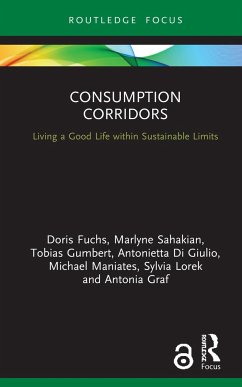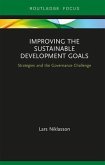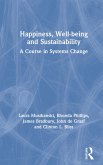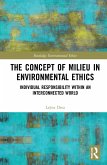Consumption Corridors: Living a Good Life within Sustainable Limits explores how to enhance peoples' chances to live a good life in a world of ecological and social limits. Rejecting familiar recitations of problems of ecological decline and planetary boundaries, this compact book instead offers a spirited explication of what everyone desires: a good life. Fundamental concepts of the good life are explained and explored, as are forces that threaten the good life for all. The remedy, says the book's seven international authors, lies with the concept of consumption corridors, enabled by mechanisms of citizen engagement and deliberative democracy. Across five concise chapters, readers are invited into conversation about how wellbeing can be enriched by social change that joins "needs satisfaction" with consumerist restraint, social justice, and environmental sustainability. In this endeavour, lower limits of consumption that ensure minimal needs satisfaction for all are important, and enjoy ample precedent. But upper limits to consumption, argue the authors, are equally essential, and attainable, especially in those domains where limits enhance rather than undermine essential freedoms. This book will be of great interest to students and scholars in the social sciences and humanities, and environmental and sustainability studies, as well as to community activists and the general public. The Open Access version of this book, available at http://www.taylorfrancis.com/books/e/9780367748746, has been made available under a Creative Commons Attribution-Non Commercial-No Derivatives 4.0 license.
Hinweis: Dieser Artikel kann nur an eine deutsche Lieferadresse ausgeliefert werden.
Hinweis: Dieser Artikel kann nur an eine deutsche Lieferadresse ausgeliefert werden.
"This lively, reader-friendly book sets out the case for 'consumption corridors' - a novel route to enjoyable but sustainable lives for all of us in the rich world of the 2020s. It makes a compelling - almost obvious - case, clarifies the obstacles, and sketches a practical vision to propel us on the journey to 'living well within limits'."
Ian Gough, Visiting Professor in CASE and Associate of GRI, London School of Economics, UK
"This book masterfully explains why sustainable limits, in the form of consumption corridors, are a central concept for addressing fundamental issues of justice and power, and to imagine workable pathways to a better future. Too often sustainability remains apolitical and vague: sustainable consumption corridors bring research into the reality we all need to transform."
Julia K. Steinberger, Professor of Societal Challenges of Climate Change, University of Lausanne, Switzerland
"Dominant understandings of sustainability over the past three decades have maintained a resolute fixation on efficiency improvements and individualized strategies of social change. These conceptions have also fetishized technological breakthroughs and underplayed the existence of biophysical limits. By placing sufficiency at the center of transformation, the notion of consumption corridors opens credible and equitable windows of opportunity for system innovation that can meaningfully engage all global citizens."
Maurie J. Cohen, Professor of Sustainability Studies, New Jersey Institute of Technology, USA
Ian Gough, Visiting Professor in CASE and Associate of GRI, London School of Economics, UK
"This book masterfully explains why sustainable limits, in the form of consumption corridors, are a central concept for addressing fundamental issues of justice and power, and to imagine workable pathways to a better future. Too often sustainability remains apolitical and vague: sustainable consumption corridors bring research into the reality we all need to transform."
Julia K. Steinberger, Professor of Societal Challenges of Climate Change, University of Lausanne, Switzerland
"Dominant understandings of sustainability over the past three decades have maintained a resolute fixation on efficiency improvements and individualized strategies of social change. These conceptions have also fetishized technological breakthroughs and underplayed the existence of biophysical limits. By placing sufficiency at the center of transformation, the notion of consumption corridors opens credible and equitable windows of opportunity for system innovation that can meaningfully engage all global citizens."
Maurie J. Cohen, Professor of Sustainability Studies, New Jersey Institute of Technology, USA








